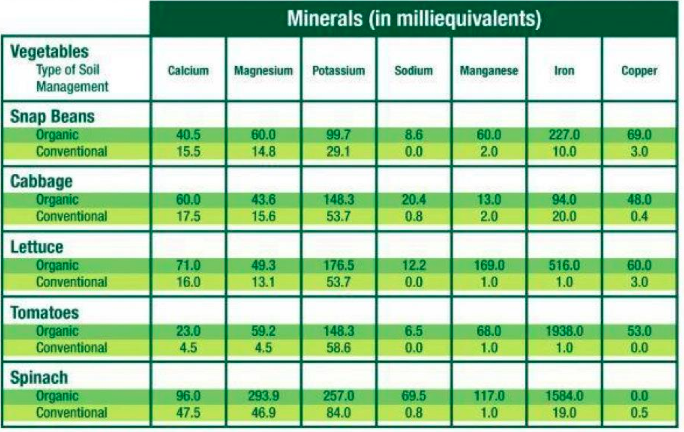We are on the verge of a new era in global agriculture, where the amount of research and investment dedicated to organic farming is on the increase due to its abundance of environmental benefits, lucrative market opportunities and sheer level of consumer demand. Organic agriculture not only creates more profit for producers but also yields healthier and more nutritious food, thereby increasing its prominence as a valuable solution to the modern challenges of global food security. One questions remains – will we be able to sustain our entire global population on organic farming alone?
Current conventional agriculture is one of the major threats to our environment and degrades the very natural resources we depends on for survival. Relying instead on safe and natural practices such as biological crop care, organic farming generates environmental, nutritional and socioeconomic benefits that far outpace their conventional counterparts. This innovative method in modern agriculture ultimately produces healthier yields, enhances natural capital through the restoration of agricultural land and has far greater climatic resilience. This is achieved through a shift in focus from mass production at any cost to the preservation of soil health, eradicating the use of synthetic and dangerous inputs for crop care, recycling nutrients and energy as well as safeguarding the benefits of biodiversity.
The Win for Organics over Conventional Agriculture
Organic systems better balance the following four areas of sustainability
 Source: The Guardian (2016)
Source: The Guardian (2016)
Although organic farming systems produce yields that average up to 20% less than their conventional counterparts, an average 35% more profit is achieved for organic farmers due to the aforementioned environmental benefits alongside the impressive levels of consumer demand. The global organics market, worth US$80.4 billion in 2014 (and having increased five-fold since 1999) is expected to double to US$161.5 billion by 2018. With key demographics, particularly millennials, keen on the move towards a natural lifestyle, the demand is here for the long haul and validates organics as a clear and profitable investment opportunity. The demand for organic food has increased by nearly 50% every year for the past five years.
The world’s largest food producers are taking note of this shift. General Mills saw its net profits from GMO products plunge by 24% in 2015. In an effort to keep up, the food giant is now doubling its organic purchases this year. There are simply more gains to be had in the organics market. Soper Farms for example has increased its net income from $180 per acre with GMOs to $578 per acre with organics. It is also important to note that operational cost for running a farm fall as much as 40% once it is certified organic as it no longer requires expensive patented seeds or synthetic inputs.
Organic Farming Greatly Increases the Nutritional Value of Food
 Source: Rutgers University (1995)
Source: Rutgers University (1995)
The gap in yields is not an obstacle for feeding the world, especially when you consider that we currently grow far more food than is actually necessary. People consume only 43% of the grains grown around the world. 35% of these grains become livestock feed and 10% create biofuels, high fructose syrups and other processed products. One-third of the food produced for human consumption is wasted. By reducing waste and prioritizing crops for food, organics have the ability to feed the world even with their comparatively lower yields.
Increasing the prevalence of organic agriculture in the world through public policy and private investment is a very important step for global food and environmental security. In a time of increasing population growth, severe climate change and the continued degradation of our vital resources, we need agricultural systems that promote sustainability and provide a more balanced range of social and environmental benefits. Given the current precarious situation in agriculture, we must opt for alternative management styles. Fortunately organic is not the only sustainable alternative to conventional farming, as there is a wide range of viable methodologies available such as integrated systems that utilize the very best of both worlds. These methods are certainly the way forward.